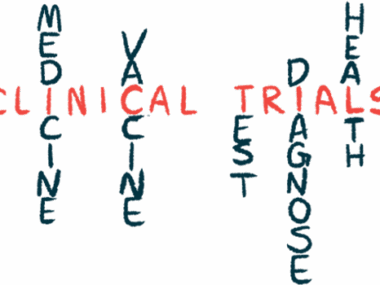XTMAB-16 wins orphan drug status in Europe; Phase 1/2 trial begins
Treatment earned similar designation in US in 2020
Written by |

The European Medicines Agency (EMA) has granted XTMAB-16, Xentria‘s investigational antibody therapy, orphan drug designation for sarcoidosis. The status is intended to help speed the development of therapies that would fulfill an unmet health need for people with life-threatening or chronically debilitating rare diseases, which are defined as those affecting no more than one in every 2,000 people in Europe.
XTMAB-16 earned a similar designation in the U.S. three years ago, where a rare disease is one that affects fewer than 200,000 people. An orphan drug designation offers various financial incentives and regulatory support to accelerate a therapy’s development.
“Receiving designation of Orphan Drug from the EMA in the [European Union], in addition to the U.S., for our lead candidate XTMAB-16 further highlights the real need for ongoing drug development in rarer conditions such as sarcoidosis,” Tom Shea, Xentria’s president, said in a company press release.
The company also announced the first U.S. patient has been enrolled in the global Phase 1b/2a clinical trial (NCT05890729) that’s testing XTMAB-16 in people with pulmonary sarcoidosis. The study is recruiting up to 94 adults, ages 18-80, with the lung disease at five sites in the U.S.
“This designation further validates the potential of XTMAB-16 to fill the existing treatment gap in pulmonary sarcoidosis across the world,” Shea said. “We have now enrolled our first patient into the study and believe the potential for this treatment could make a big difference for those suffering from the disease.”
XTMAB-16 in a Phase 1 trial
In pulmonary sarcoidosis, the most common type of sarcoidosis, small clumps of inflammatory cells, or granulomas, build up in the lungs. Ensuing inflammation and tissue damage lead to difficulty breathing.
As a TNF-alpha inhibitor, XTMAB-16 blocks TNF-alpha, a pro-inflammatory molecule released from immune cells that’s implicated in inflammation and granuloma formation. When delivered directly into the bloodstream, the therapy should ease inflammation and prevent granulomas from forming. Indeed, it reduced granuloma formation in a patient-derived granuloma cell model.
A Phase 1 trial (NCT04971395) completed in 2022 evaluated the safety and pharmacologic properties of a single infusion of XTMAB-16 (2 or 4 mg/kg) against a placebo in 25 healthy adults.
The most common side effects associated with XTMAB16 included headache and stuffy nose, according to a report from Xentria. No serious treatment-related side effects were observed. Some patients developed antibodies against the therapy, but they weren’t associated with any side effects.
Goal to reduce steroid dose
The ongoing Phase 1b/2a trial will include pulmonary sarcoidosis patients receiving treatment with standard-of-care corticosteroids who are eligible to have the dose reduced during the trial.
Corticosteroids are associated with significant side effects, especially with long-term use. Reducing their dose is a key goal of potential new therapies.
Participants may or may not have sarcoidosis manifestations in places other than the lungs.
The trial will be conducted in two parts. In the first part, participants will receive either 2 or 4 mg/kg of XTMAB-16 or a placebo, given once every two or four weeks for 12 weeks (about three months) while their corticosteroid dose is slowly tapered.
The therapy’s safety and the proportion of participants who successfully achieve corticosteroid tapering will be assessed to determine the optimal dose to be tested against a placebo for 24 weeks (about six months) in the second part, the goal of which is to determine the proportion of patients who can maintain a steroid dose reduction through six months.
“The first patient being enrolled onto the study … will add to the breadth of data that will explore the potential of XTMAB-16 in treating sarcoidosis,” said Ogugua Obi, MD, a pulmonologist in North Carolina and the study’s lead investigator. “The resulting data will include clinical safety data, in vitro [in the lab] results in a granuloma model, and novel biosimulations, all of which will play a vital part in the pathway to bring this drug to the market in both the US and Europe.” A biosimulation is a computer simulation designed to mimic a biological process in the body.
Earlier this year, Xentria entered into an agreement with Meitheal Pharmaceuticals, of which Shea is the CEO, that grants the latter the sole rights to sell and distribute XTMAB-16 in North America, if it’s approved. Xentria maintains rights to market the therapy in all other countries and will continue to be responsible for the therapy’s clinical development.






